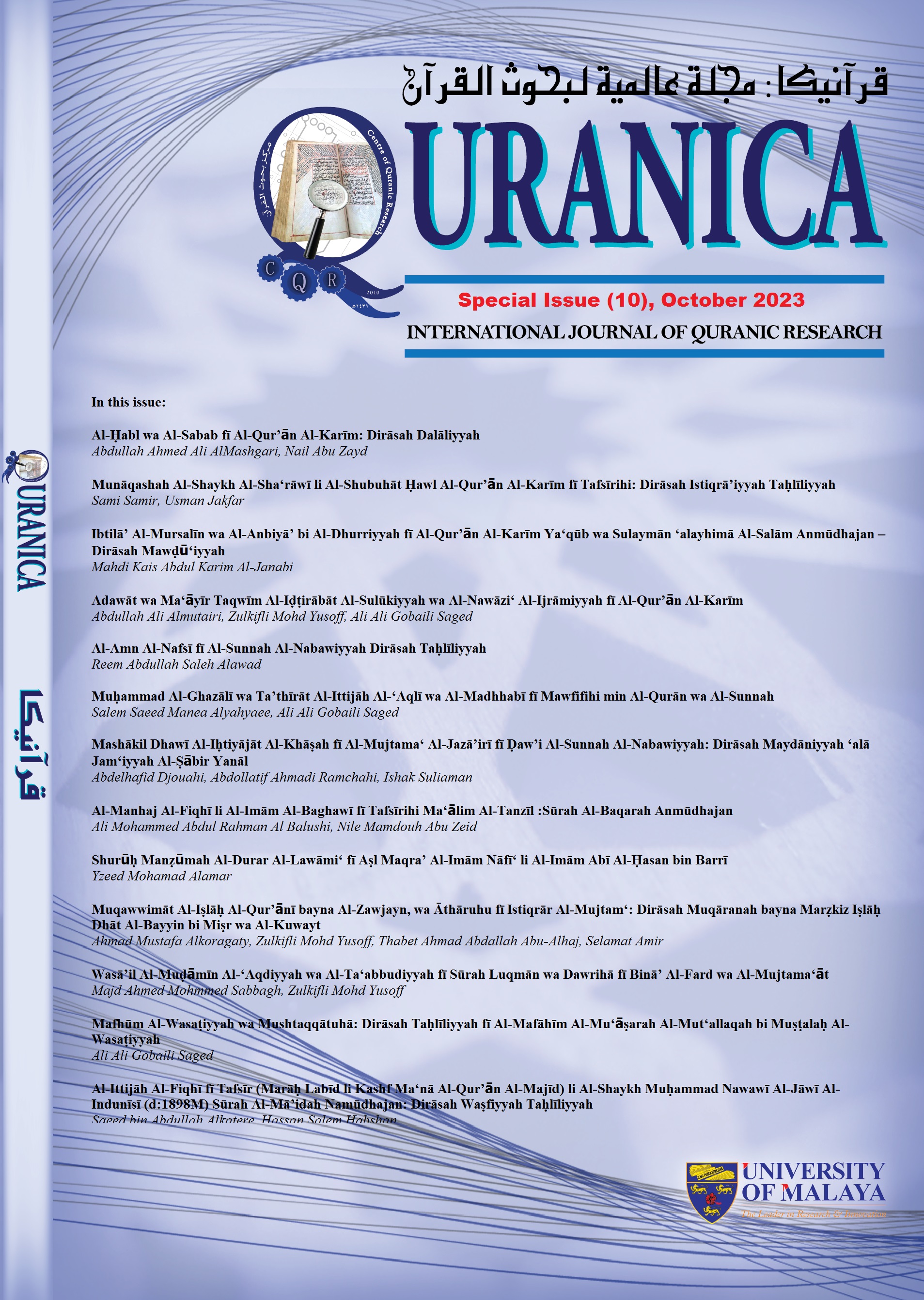Istidrākāt Zayn Al-Dīn Al-‘Irāqī ‘alā Abī Ḥayyān Al-Andalusī fī Tafsīr Gharīb Al-Qur’ān :Sūrah Al-Baqarah Namūdhajan
Main Article Content
Abstract
The subject of the research is the result of the importance of the science of the strange of the Qur’an, and the high scientific status of the two imams Zayn Al-Dīn Al-‘Irāqī and Abū Ḥayyān that only a few scholars have reached, as they left behind a rich scientific heritage. In the interpretation of the strange Qur’an”. Studying it to reach the degree of its validity and realism, following the inductive-analytical approach, which is the approach that relies on collecting information, then comparing, analyzing and interpreting it to find correct and accurate scientific results. Among the most important of these results: God Almighty, and that this science was a contemporary of revelation, and the authorship movement arose in it during the era of the Companions, and scholars are still writing and writing books that serve this science, and among these books is “Tuḥfah Al-Arīb” by Abū Ḥayyān, and he arranged it according to the letters of the dictionary, and it was abbreviated very briefly and with That was full of valuable benefits from which some lengthy books were missing, and therefore there are scholars who rearranged it, and some of them added to it, and some of them composed it, and among them Zayn Al-Dīn Al-‘Irāqī, and he corrected Abū Ḥayyān in some places, and the purposes of Al-Irāqī’s corrections revolved around Abū Ḥayyān between four purposes, namely: complementing a deficiency, removing confusion, adding meaning, or correcting an error; With directing the listener to a meaning that is more important than it, with what these corrections include signs that show the reasons for the difference in interpretation, and that most of them are due to the possibility of the word having more than one meaning, and there is no disagreement stemming from ignorance or passion.
Downloads
Article Details
Disclaimer
QURANICA makes every effort to ensure the accuracy of all its contents. However, opinions, discussions, views and recommendations are expressed in this journal do not necessarily reflect the official policy of QURANICA or views of its editors or publishers. Therefore, QURANICA and its publishers will not be liable for any controversy may be arisen. The journal reserves the right, at its sole discretion, to change its terms and conditions of publications.
Copyright
It is a condition of publication that manuscript submitted to the journal have not been published, accepted for publication, nor simultaneously submitted for publication elsewhere. By submitting a manuscript, the author(s) agrees that copyright for the article is transferred to the publisher, if and when the manuscript is accepted for publication.
